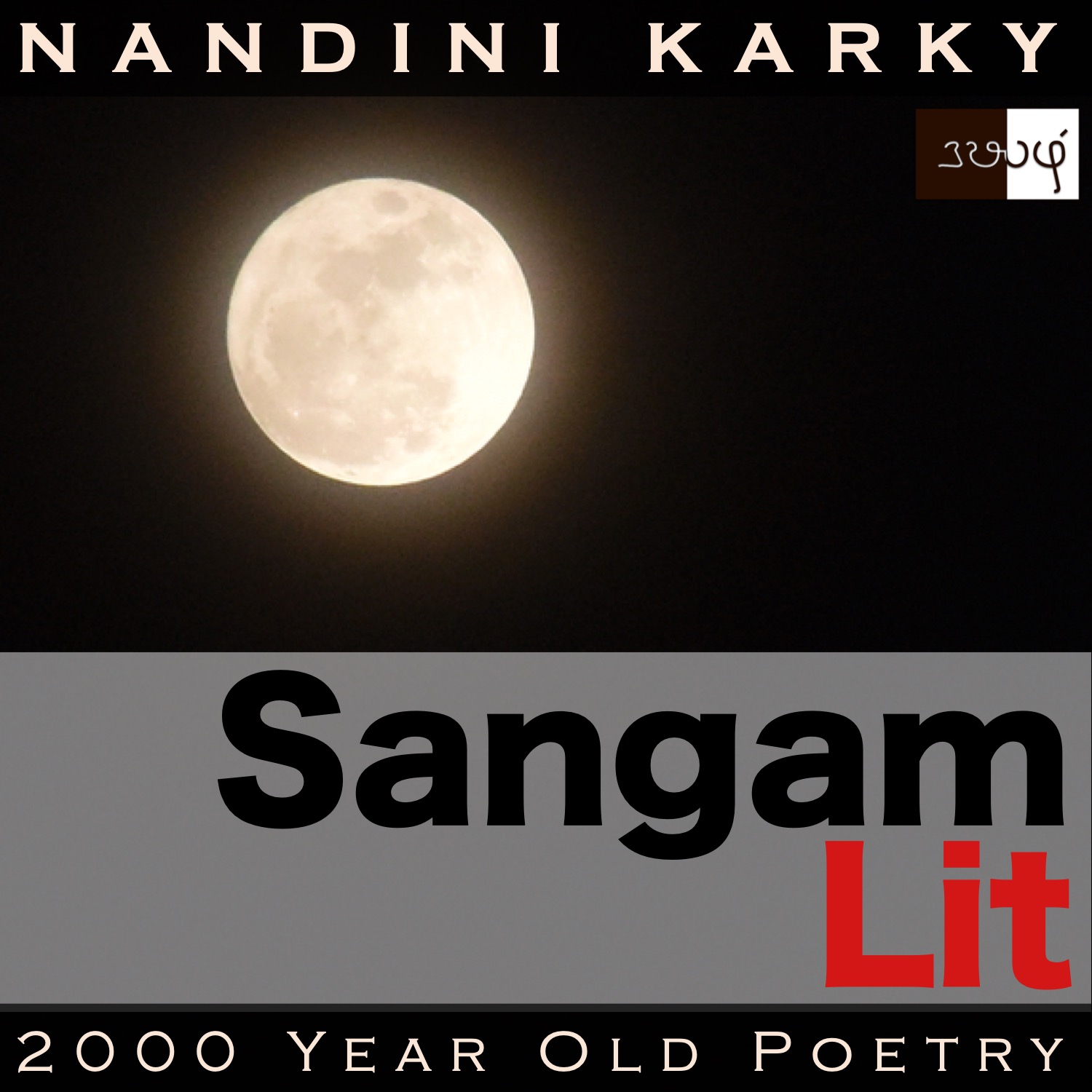Podcast: Play in new window | Download
Subscribe: Apple Podcasts | Spotify | Amazon Music | Android | iHeartRadio | Email | TuneIn | RSS | More

In this episode, we shall delve into Natrinai Poem 8, penned by an anonymous poet, and set in the landscape of Kurinji or the mountainous regions of ancient Tamil land, in the words of a man in bliss.
அல்கு படர் உழந்த அரி மதர் மழைக்கண்,
பல் பூம் பகைத் தழை நுடங்கும் அல்குல்,
திரு மணி புரையும் மேனி மடவோள்
யார் மகள்கொல்? இவள் தந்தை வாழியர்!
துயரம் உறீஇயினள் எம்மே: அகல்வயல்
அரிவனர் அரிந்தும் தருவனர்ப் பெற்றும்
தண் சேறு தாஅய், மதனுடை நோன் தாள்
கண் போல் நெய்தல் போர்வில் பூக்கும்
திண் தேர்ப் பொறையன் தொண்டி-
தன் திறம் பெறுக, இவள் ஈன்ற தாயே!
Kurinji or the mountains loom into sight again! Relished the expression ‘மழைக்கண்’ or ‘cool moist eyes like rain’ that we encountered previously. In my first glance through the verse, I understood that this was a poem in praise of a lady’s father (தந்தை வாழியர்) and her mother (ஈன்ற தாயே)! The expression, ‘யார் மகள்கொல்?’ (Whose daughter is she or who is her father?), brought to mind, lines from some modern Tamil film songs. There is a feeling of ecstasy but at the same time words like துயரம் and அல்கு meaning sadness brought out the bitter-sweet emotions of a tormented lover. A beautiful rhythm echoes in the successive lines of தண் சேறு, கண் போல் and திண் தேர்ப், adding a song-like flow to this verse. Ancient poets were indeed, adept at creating music with words.
After a few more dips into the verse and explanatory texts, I present to you the meaning and context of this verse: These words are spoken by a man after his union with a lady, the morning after, when he encounters her with her friends. He says, ‘Those lined, luscious, cool eyes would torment anyone who beholds it; There, fragrant flowers and leaves encircle and sway on her loins; And that skin, which glows with the radiance of precious gems; Tell me, whose daughter might this gentle young lady be? Long live her father! How much anguish she evokes in me, in my longing for her! And the mother of this sweet lady – let her attain the glory of the city of Thondi, ruled by King Poraiyan, who commands those powerful chariots; A city where farmers reap the sown crop and send it across the land, along with the blue lotus streaked with cool mud, smiling like a maiden’s eye, in between those long stalks of hay. Long live her father and mother!’
Reflecting on the layers of this verse, first is the portrait of a lady’s attire then, a glimpse of someone swaddled in the leaves and flowers of this green landscape. The reference to crop sown in one place, harvested and sent to another could be considered a poetic echo of how this lady is birthed by the parents and grows up to give joy to another, far away. The lines pertaining to King Poraiyan, an ancient Chera king and the town of Thondi brings to fore, a historic character that we will meet again in our exploration of Sangam verses. Someone with powerful chariots – perhaps today’s equivalent of Bugattis and Jaguars! Finally, I think the most important finding is that the praise for a lady’s beauty is laid by this narrator on the mother and father and not on some heavenly entity. I see this as an understanding of genetics long ago before the concept came to being. It’s the mother’s DNA and the father’s DNA together bringing about physical characteristics in any human, we know now. I salute the understanding of these ancient people! Also, makes me feel that the outer beauty that one is born with, is something that depends only on the mother and the father. There need be no personal glory or blame in that. However, I believe that the beauty of one’s inner self is in one’s hands and that has the power to supercede the superficial. So, what special thing are you doing for your inner beauty today?




Share your thoughts...